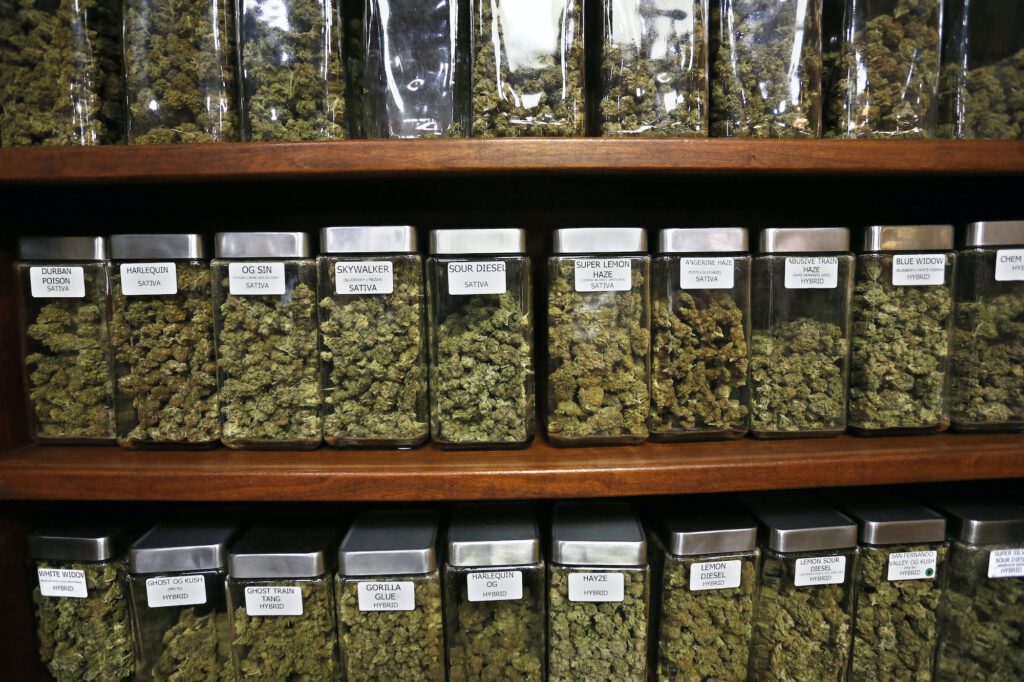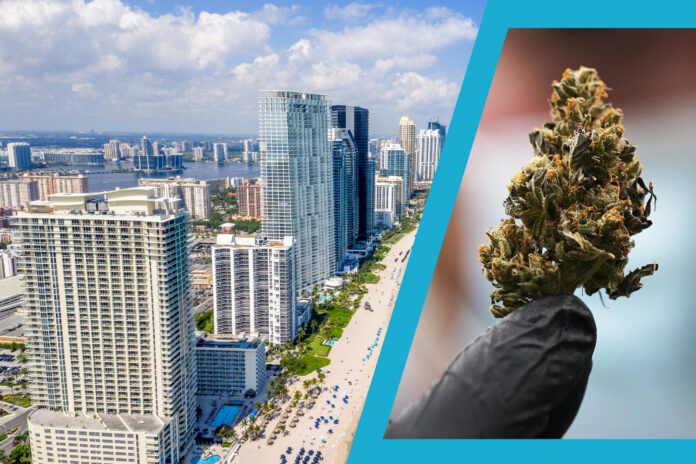Constant sun and amazing beaches. Plenty of tourist attractions. Affordable housing. No state income tax. All of these have one thing in common: they’re part of what makes living in Florida appealing for many people. The Sunshine State has plenty to offer, but it isn’t exactly at the forefront of medical and recreational marijuana legislation. Today, we’ll cover Florida’s marijuana laws and how medical marijuana works in the state.
Marijuana is legal in Florida, but only under certain circumstances
For a state that routinely hosts big parties like Spring Break, it might surprise you that they take a hardline approach to marijuana. As of 2022, the state only allows qualified individuals to possess and use a small amount of marijuana. And it’s for medicinal purposes only.
So what does it take to qualify for medical marijuana use in Florida? First, you must be a Florida resident. Whether you permanently reside there or merely live there seasonally, establishing residency is necessary. Then, you need to find a licensed doctor to get a recommendation (more on that in a moment). Finally, you need a registration/ID card at a licensed dispensary. Florida strictly regulates how much you can possess as well.
Qualifying Conditions
To obtain cannabis in Florida, you must have one of the qualifying conditions outlined by the state. Here’s a quick rundown:
To get medical marijuana in Florida, patients must meet the criteria for qualifying conditions outlined by the state’s requirements. Cancer, glaucoma, epilepsy, HIV, PTSD, multiple sclerosis, Parkinson’s disease, and terminal illnesses are all qualifying conditions within the state.
First, the patient must find a licensed doctor. Then the doctor speaks with and evaluates the patient to determine if medical marijuana is an appropriate course of action. If so, they write a recommendation. Then, the burden of registering with Florida’s Office of Medical Marijuana Use falls on the patient. Following registration, a patient receives an ID card they can use to be able to make medical marijuana purchases from licensed dispensaries within the state.

Are There Recreational Dispensaries in Florida?
Speaking of dispensaries, you’re probably wondering if Florida has any recreational ones. The short answer is “no.” Although recreational facilities exist in other states, Florida has plenty of licensed dispensaries for medical marijuana.
Dispensaries in Florida are also called Medical Marijuana Treatment Centers. They’re the only places qualified patients can purchase marijuana. These dispensaries have purchase limits based on dosage and will always comply with state laws regarding medical cards and Florida’s limit of three 70-day supplies for qualified patients.
Even Approved Patients Are Limited To What They Can Access
Given that medical marijuana is legal with certain qualifying conditions, you might wonder if there are any limitations to how much you can possess. The answer is a resounding “yes.” Low-dose THC is the name of the game here. Florida only allows qualified patients (people with a licensed doctor’s recommendation and a registered Medical Marijuana Use card) to have a limited supply.
As of August 2022, physicians have strict limits on patient certifications depending on the type of medical marijuana they use. Florida’s operational definition for low-dose THC is “less than .8% THC in the plant’s dried flowers and more than 10% CBD.”
Medical marijuana is available as edibles, smoking products, tinctures, and oils. And just in case you were wondering, you definitely can’t grow your own at home, regardless of having a qualifying condition!
Things May Change In The Future
When it comes to the future of recreational marijuana in Florida, the future isn’t bright enough yet for a new pair of shades. Although Florida recently introduced a 2024 ballot initiative for personal use, Florida’s Supreme Court rejected two recreational use measures earlier this year.
Florida residents—to the surprise of no one—are at odds with that decision. Voters, supporters, and Florida residents remain hopeful (a current petition is circulating with nearly 10,000 signatures), but only time will tell.
